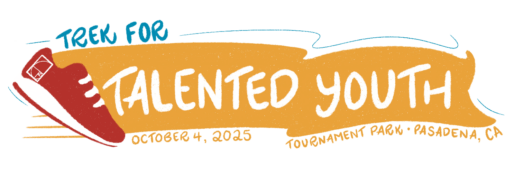By Rachel Hanks, IEA Communications Assistant
The current state of our world has forced many of us to be stuck inside physically. Mentally, the social distancing measures along with the uncertainty of what’s to come can cause a lot of unrest and unhappiness. I know I personally have been feeling anxious and nervous when I think about everything going on right now. Even when we weren’t in such unprecedented times and things were more “normal”, spring has always been a wonderful time to reset mentally. It’s a season of life and growth; flowers bloom, days are longer and the weather is warmer.
If you are looking for things to keep your mind and body occupied while adhering to physical distancing, explore some of the options below.
● Clean and reorganize spaces in your house.
If the prospect of deep cleaning your entire house seems daunting, simply focus on clearing out an overflowing closet or throwing away old papers on your desk. Decluttering and organizing might help you feel productive and more in control of your situation. One study for the Mindfulness journal even found a correlation between people doing dishes and an increase in positive emotions like inspiration and mindfulness and a decrease in negative emotions like nervousness.
● Try an online workout.
In this digital age and with social distancing in full-swing, there is no shortage of online workout classes to choose from. Check out YouTube for some free yoga flows, or find a gym that might be live-streaming a Zumba class. Exercise is linked to many psychological benefits, such as improved mood, decreased anxiety and boosted creativity.
● Plant something.
Getting down in the dirt and growing plants can stimulate positive feelings, reduce stress and increase mindfulness. If you have access to a yard, try planting flowers or vegetables. If you don’t have a yard, you can always pick up seeds from your local nursery or order them online and start an herb garden on your window sill.
● Create art. Draw, paint, sculpt or write.
Whatever gets your creative juices flowing, try it out! Harvard Health Publishing shared that expression through art can improve cognition, reduce stress and promote relaxation. Creating art can also give your eyes a much-needed break from staring at your computer and phone screens.
● Journal.
Writing your thoughts and emotions down on paper can give you a sense of release and an opportunity to reflect. Sometimes, simply writing down your fears and concerns can instantly help you feel more at ease. It can also allow you to examine negative thoughts and potentially identify situations or moments that contribute most to those feelings.
● Talk to someone.
Whether you choose to talk to someone you live with or call a friend or family member, interacting with other people, focusing on topics that aren’t centered around the news and enjoying the company of others can allow you to feel more social and improve your mood. There are also apps and online tools like TalkSpace where you can speak with licensed therapists if you are seeking professional mental health help.
● Meditate.
There is research to suggest that mindfulness meditation may ease symptoms of anxiety and depression. In a rapidly moving and chaotic world, many people find comfort in and benefits associated with sitting and focusing on breathing through a guided meditation for a few minutes. If interested, try IEA’s mindfulness exploration or an app like Calm or Headspace.
I also feel compelled to end this list with a disclaimer. The activities mentioned above are simply suggestions that might provide some relief to any mental distress you may be experiencing right now. They are not meant to stand in for professional guidance nor do I hope they make you feel anything other than intrigued or inspired to try a new, soothing activity.
Right now many of us are inundated with a seemingly constant, discouraging news cycle. Many have also been under a barrage of encouragement from brands and peers to use this time of self-isolation to be extremely productive. Viral challenges and lists like the one above may make you feel like you should be as busy as– or even busier than– you were in your pre-quarantine life; baking cupcakes in the morning, running three miles in the afternoon, knitting in the evening and finishing that best-selling book you’ve been meaning to read all before you go to bed.
American psychologist, Abraham Maslow, described that humans are motivated by five basic needs. These needs are physiological, safety, love, esteem and self-actualization. Before we can even begin to work towards feeling confident in who we are (our esteem) and feel we are achieving our greatest potential (self-actualization), we must first ensure our physiological needs and safety. This means we must have food, water and a place to sleep. After that, we need to feel safe and secure, we need a predictable environment that is free from threats and harm.
In the current situation, many people’s physiological and safety needs feel threatened. If you are worried about getting food, staying healthy or ensuring you have a home to sleep in, it might be very difficult to focus on painting a portrait or feel motivated to clean your closet. Our regular lives and most basic needs are suddenly no longer guaranteed in the way we might have always known them to be.
So before you feel like you need to learn a new skill, pick up a hobby or FaceTime all your friends and family members, focus on meeting your basic needs. Setting even just three simple goals for yourself to achieve in a day, like making your bed, brushing your teeth and eating breakfast, can help you feel more productive and in control of your situation. We cannot move onto meeting our higher needs or even helping others if we have not first prioritized ourselves. Be gentle with yourself and focus on getting through your day, little by little. We can all use a bit more self-love during this strange spring season.
IEA is here for you. Click here to learn more about IEA’s online resources for your family.



